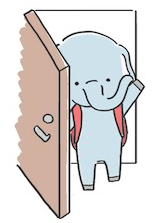ブログスレッド
- Japanese Online Newsletter Vol. 146 日本での生活のルール(にほんでのせいかつのルール)


日本で生活をするには色々なルールがあります。「ポイ捨て禁止」「喫煙禁止」「携帯はマーナーモード」など標識になっているものもありますが、どこにも書かれていない「常識」や「マナー」と言われるルールも多くあります。中には、「茶道」「華道」「ビジネスマナー」のように、特定の場面に応じたルールもあります。
実際には、ルールが多すぎて、日本人でも知らないものが多くあります。例えば、「エスカレーターでは左側に立って、右側は歩く人のために空けておく」(ただし関西は逆)や、「歩道は右側を歩く」などは多くの場合、特に看板はありません。「お風呂に入る時は、先に体を流してきれいにして入る」「電車は降りる人が優先で、人が降り終わってから乗り始める」なども書かれていません。
では、書かれていない、しかも知らないルールをどのようにして守ればよいのでしょうか。実は、それほど難しいことではありません。周りの人がどのようにしているのかを観察して、同じことをすれば良いのです。そう、日本人はグループでも知り合いでもないのに団体で行動します。それは、多くの人がやっていればそれが正しいと考える習慣があるからです。ですから、日本人は個性がないとよく言われてしまいます。
反対に多くの人が間違った行動をすると、たとえそれが間違っていたとしても正しい、となってしまいます。これが日本の怖いところでもあるのです。「みんなでやれば怖くない」という言葉があるように、集団での行動力は日本人はすごいと思います。例えば流行もそうです。日本では流行がすごく広がりやすいですが同時に廃るのも早いです。
日本で生活する際は、周りが何をしているのかを見て、それを真似すればルール違反にはなりません。日本に行ったらみんなが何をしているのか、見てみてください。また、新しいルールを見つけたら是非、教えてください。
Rules When Living in Japan
There are many rules when living in Japan. Some are written on signs like, "No littering", "No smoking", or "Cell phones should be in silent mode". But there are also unwritten rules that are referred to as "common sense" or "manners". Some rules are specific to particular occasions, like “Japanese tea ceremonies”, “flower arrangements”, and “business manners".
In fact, there are so many rules, many of which Japanese people don’t even know. For example, standing on the left side on escalators to leave the right side open for walkers (or the opposite in Kansai) and walking on the right side of sidewalks aren’t specifically written rules on signs in many cases. Other examples of unwritten rules include washing and cleaning your body first before taking a bath and giving priority to those getting off a train.
So, how can we follow these unwritten and unknown rules? It’s actually not as difficult as it sounds. All you have to do is observe what others are doing around you and do the same. Japanese people act in groups, even if they don’t know each other or are not in the group. They have a habit of thinking something is right if many other people are doing it. Therefore, people often say the Japanese lack individuality.
Conversely, something wrong can become right when many people do it. This is one of the scariest things about Japan. They have a saying that goes, “if everyone does it together, there is nothing to be afraid of”. So, I think Japanese people have a great ability to act collectively. So, it’s easy to spread trends in Japan. Likewise, trends can also go very quickly.
While living in Japan, you won’t violate any rules if you imitate what others are doing. When you go to Japan, please look at what everyone else is doing. Also, if you find any new rules, please let us know.

sign up for the Japanese-Online Newsletter
__..-・**・-..__..-・**・-.._ あいうえお かきくけこ さしすせそ たちつてと なにぬねの はひふへほ まみむめも やいゆえよ らりるれろ わゐうゑを ん __..-・**・-..__..-・**・-.._
#JapaneseOnline #LearningJapanese #FreeJapaneseLessons #JapaneseVideoLearning #JapaneseAnime #Anime #JapaneseFood #Bloguru
- ブログルメンバーの方は下記のページからログインをお願いいたします。
ログイン
- まだブログルのメンバーでない方は下記のページから登録をお願いいたします。
新規ユーザー登録へ